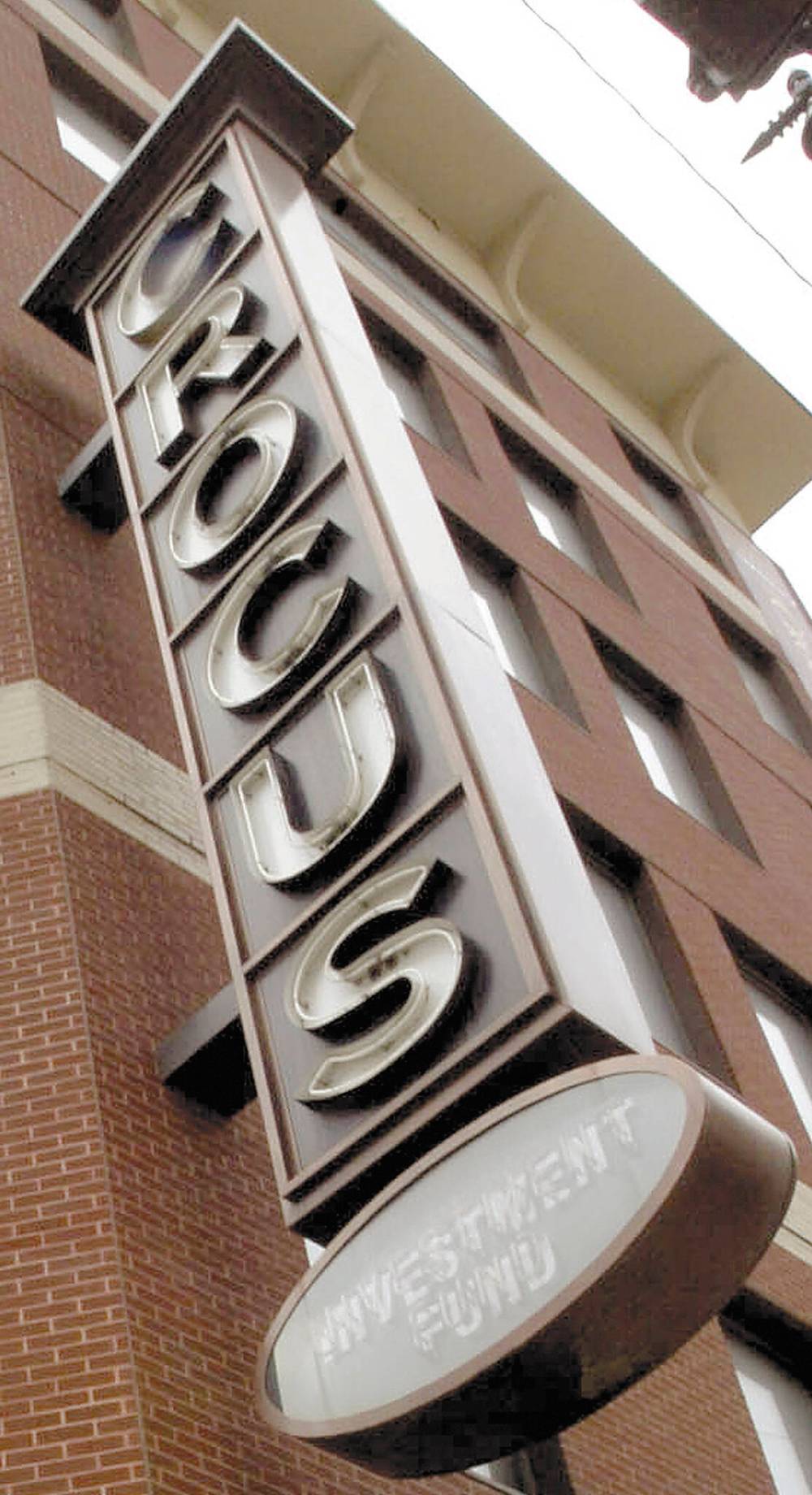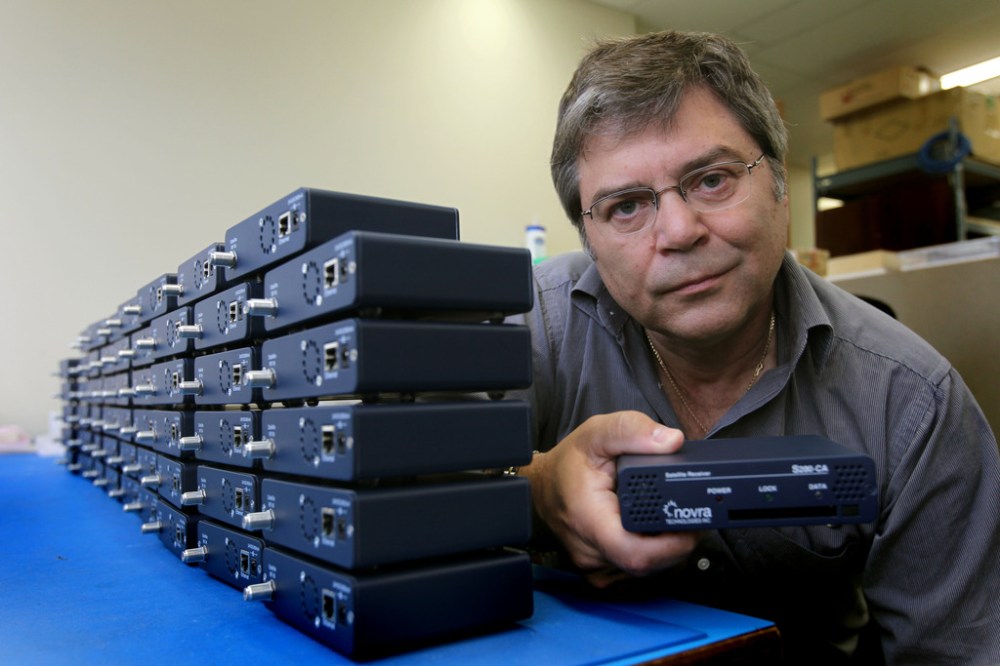Courts approve Crocus final payment Receiver to distribute $5.2M to shareholders
Read this article for free:
or
Already have an account? Log in here »
To continue reading, please subscribe:
Monthly Digital Subscription
$0 for the first 4 weeks*
- Enjoy unlimited reading on winnipegfreepress.com
- Read the E-Edition, our digital replica newspaper
- Access News Break, our award-winning app
- Play interactive puzzles
*No charge for 4 weeks then price increases to the regular rate of $19.00 plus GST every four weeks. Offer available to new and qualified returning subscribers only. Cancel any time.
Monthly Digital Subscription
$4.75/week*
- Enjoy unlimited reading on winnipegfreepress.com
- Read the E-Edition, our digital replica newspaper
- Access News Break, our award-winning app
- Play interactive puzzles
*Billed as $19 plus GST every four weeks. Cancel any time.
To continue reading, please subscribe:
Add Free Press access to your Brandon Sun subscription for only an additional
$1 for the first 4 weeks*
*Your next subscription payment will increase by $1.00 and you will be charged $16.99 plus GST for four weeks. After four weeks, your payment will increase to $23.99 plus GST every four weeks.
Read unlimited articles for free today:
or
Already have an account? Log in here »
Hey there, time traveller!
This article was published 03/02/2022 (1406 days ago), so information in it may no longer be current.
The final chapter of the Crocus Investment Fund saga is about to close.
The seemingly never-ending receivership – almost 17 years since the initial court order – is being wrapped up after the courts approved Deloitte’s request to make a fourth and final payment to shareholders of $5.2 million in late January.
The 33,000-plus Crocus shareholders will receive $0.36 per share in the final distribution which will commence sometime after Feb. 25, 2022, the deadline for shareholders to file an objection.
With the final distribution, Crocus shareholders will have received a total of $85 million in proceeds from the liquidation of the fund (which included proceeds from insurance payments from a class action).

In its submissions to the court, Deloitte noted that there is still about $2 million in unclaimed funds — which will be turned over to the provincial department of finance — from three previous cash distributions. Also, the court agreed that Deloitte should hold back $650,000 for the administration of the final distribution.
The arrival at this end date now is a result of the disposition of the last three Crocus holdings out of the 46 when the court-ordered receivership was established in June, 2005.
It was always going to be a tricky undertaking as many of the holdings were with private companies where there was no ready market to monetize those investments.
In its own defence, in Deloitte’s 19th and final receiver’s report filed last month, it said, “The receivership has involved complex and difficult negotiations in liquidating certain of the residual investments, along with protracted litigation proceedings.”
The reference to litigation involved its investment in Canad Inns which was finally resolved through a judicially assisted dispute resolution in late 2019 ending a court battle that lasted more than five years.
Crocus Investment Fund Timeline
1991 – Crocus Investment Fund was launched after provincial legislation was passed creating a labour sponsored income fund. Individual investors would receive generous federal and provincial tax credits.
1992 – shares started selling. Eventually 33,569 Manitobans spent an average of $5,000 on Crocus shares.
1993-2004 – The fund held about $170 million in assets at its peak with holdings in companies like the Angus Reid Group, True North Sports and Entertainment, Mondetta, IMRIS and WOW Hospitality.
April 2005 – after a series of controversies regarding valuations and governance, the value of the portfolio took a $43-million write down. Shares that had been valued a $10.45 each were reduced to $7.00.
June 2005 – after an application to the court by the Manitoba Securities Commission, Crocus was placed in receivership and Deloitte was appointed receiver. At the time there were 46 companies in the portfolio valued at $64.1 million. Shares were then valued at $5.99.
Sept. 2009 – the first distribution to shareholders by the receiver of $54.7 million as well as $6.8 million from a class action settlement.
2011 – receiver distributed another $9.0 million to shareholders.
2014 – a third distribution totalling $9.3 million.
Jan. 2022 – a fourth and final distribution to shareholders of $5.2 million was approved by the court as was Deloitte’s accounting of its management which included a total of $9.5 million in billings by Deloitte.
Last year it also wrapped up its debt and equity holdings in Novra Technologies, a small Winnipeg broadcast technology company, with the final payment from a $1 million loan Crocus made to Novra about 20 years ago. As well, the receiver sold off 3.3 million shares in Novra in 2021.
The receiver also received $60,000 from Crocus’s involvement in a complicated wind-up of a sub-fund called Manitoba Science and Technology that Crocus was the managing partner of.
The final tally on the disposition of the 46 holdings in Crocus’s portfolio when it was placed in receivership was $65.7 million. Deloitte said the book value of those holdings back in 2005 was $64.8 million.
Over the years Deloitte has come under some criticism over the fact that the receivership dragged on as long as it did.
Brent Warga, the Deloitte partner in charge of the file was not available for comment on Thursday.
The professional services firm billed the fund a total of $9.5 million over the course of the receivership, the bulk of it coming in the first 11 years when more aggressive liquidation of holdings was taking place.
Albert Friesen, the CEO of Genesys Ventures Inc. and a partner in the Manitoba Science and Technology Fund, was not impressed with the manner in which Deloitte handled the disposition of that partnership.
Asked why it took so long to resolve that investment, Friesen said, “You have to ask them why it took so long. It was Deloitte’s process. We would have moved it along much, much quicker.”
Harris Liontas, the CEO of Novra, said he had no problem with the way Deloitte handled the file, but he did say that Novra tried to negotiate an exit a few times over the years but could not come to an agreement.
The receiver ended up doing well on the debt it held with Novra for which it received seven per cent interest for more than 10 years, he said.
Much has been said about the impact Crocus has had on the capital markets and especially the venture capital scene in Manitoba, many suggesting that its legacy has had a negative effect on the market.
Unlike most other provinces in the country, the government of Manitoba has not been engaged in providing any venture capital since Crocus’s demise. In the most recent Manitoba Speech from the Throne the phrase “We will proceed with a venture capital framework” was uttered but no details have yet emerged as to what that will look like.

Acknowledging the imminent wind down of the Crocus receivership, Cameron Friesen, Manitoba’s Minister of Finance, said the province is moving on “but not forgetting the lessons learned.”
He said, “Access to venture capital in Manitoba lags other provinces. The new venture capital framework will complement existing economic programs that help build the capacity of Manitoba businesses, make strategic investments in industry, and create jobs for Manitobans.”
Brian Hayward, the former CEO of a couple of large agricultural firms and the author of a book on corporate governance said the Crocus experience is in the past and it is better for the province to look to the future.
In an interview, he said, “It is not simply venture capital that’s needed, it is working capital, it is finding different ways to support small and medium-sized enterprises so that they have liquidity as they try to build intellectual capital situations.”
martin.cash@freepress.mb.ca

Martin Cash has been writing a column and business news at the Free Press since 1989. Over those years he’s written through a number of business cycles and the rise and fall (and rise) in fortunes of many local businesses.
Our newsroom depends on a growing audience of readers to power our journalism. If you are not a paid reader, please consider becoming a subscriber.
Our newsroom depends on its audience of readers to power our journalism. Thank you for your support.


1.jpg?h=215)






